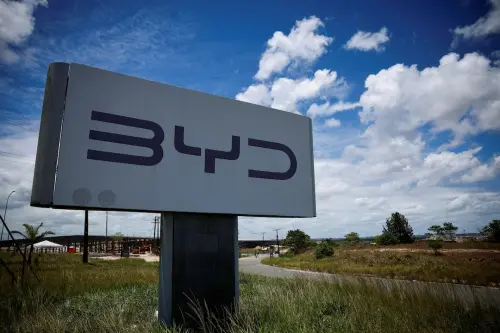China's BYD has introduced a new technology that aims to charge an electric vehicle as quickly as refueling a traditional vehicle, sparking a fast-charging competition in China.
To alleviate concerns about EV battery depletion during long trips, automakers are embracing fast-charging and battery-swapping solutions. Chinese automakers are leveraging these technologies as competitive advantages in a fiercely competitive market, contributing to the widespread adoption of EVs in China. For instance, BYD's "super e-platform" boasts a 1,000-kilowatt peak charging capacity, allowing vehicles to travel 400 km on a 5-minute charge.
BYD's advancements include batteries with a 10C charging multiplier, high-power motors, high-volt silicon carbide power chips, and fast chargers supporting 1,000 kW of power. In contrast, Tesla primarily employs a 400-volt system, although models like the Cybertruck and Semi feature higher voltages for faster charging.
Other Chinese automakers like Geely's Zeekr, Li Auto, and Xpeng have also introduced innovative fast-charging technologies capable of achieving significant driving ranges in short charging times. BYD plans to establish over 4,000 fast-charging stations across China, aiming to improve access for EV owners.
Despite these advancements, experts caution that widespread adoption of fast-charging technology may strain power grid capacities, necessitating significant investments in infrastructure upgrades. BYD intends to address this challenge by integrating energy storage units into its fast chargers, a move that could increase operating costs.
Overall, the rapid development of fast-charging technology in the EV industry indicates a growing commitment to addressing consumer concerns and driving the widespread adoption of electric vehicles in China.
